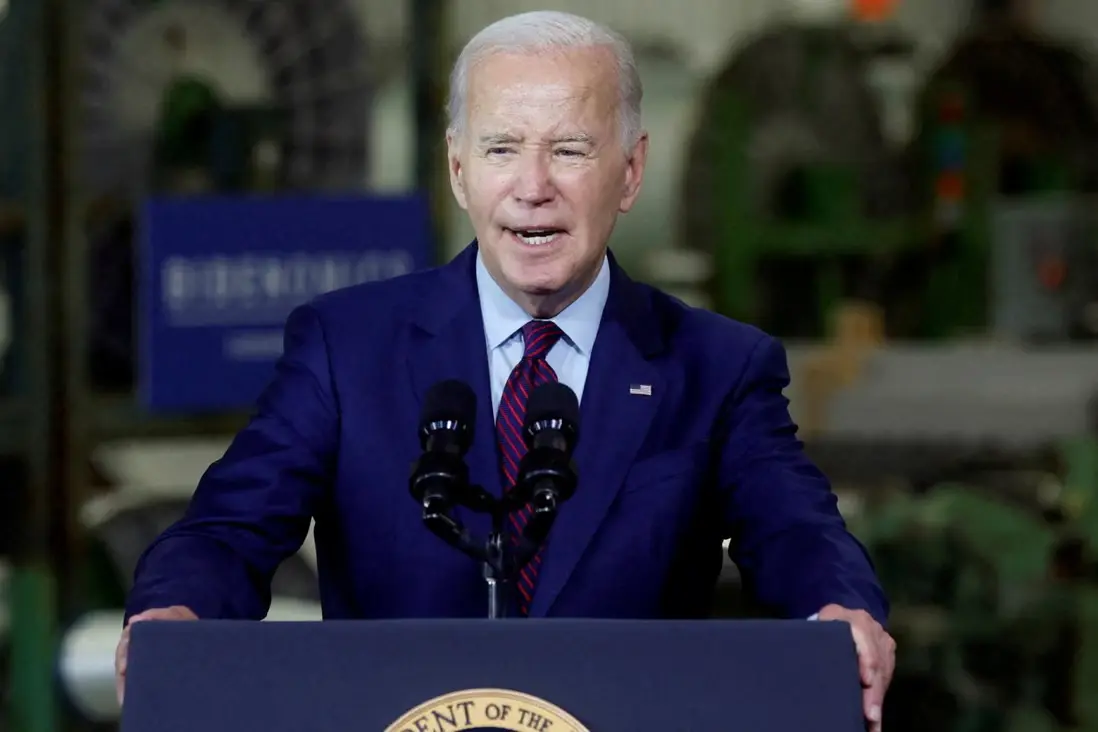News
Federal Judge Blocks Biden’s $15 Minimum Wage Executive Order in Texas

(CTN News) – A recent ruling by U.S. District Judge Drew Tipton in Texas has delivered a setback to President Joe Biden’s efforts to increase the federal minimum wage to $15 an hour for government contractors.
In a decision with significant economic and political implications, Judge Tipton declared that only Congress possessed the authority to implement such a policy, effectively blocking the enforcement of the executive order in Texas, Louisiana, and Mississippi. This article delves into the details of the ruling and its potential implications.
Judge Tipton, an appointee of former President Donald Trump, based his ruling on several key arguments. First, he cited the “major questions doctrine,” a judicial approach employed by the U.S. Supreme Court, which has been used to invalidate major Biden policies that lack clear congressional authorization.
Additionally, Tipton argued that President Biden’s executive order violated the Procurement Act, a federal law governing federal agencies’ purchasing of goods and services. He contended that the president’s authority was limited to overseeing these transactions and that setting minimum wages and employment policies rested within the purview of Congress.
The ruling specifically impacts Texas, Louisiana, and Mississippi, states that had previously filed a lawsuit challenging President Biden’s executive order.
State agencies in these regions frequently enter into federal contracts, making the minimum wage policy relevant to their operations. However, Judge Tipton temporarily stayed his decision for seven days, allowing the Biden administration time to file an appeal.
President Biden’s executive order aimed to raise the minimum wage for federal contractors to $15 an hour, aligning it with his broader pro-labor agenda, which focuses on supporting blue-collar workers.
The federal government annually spends vast sums on contracts with private businesses, nonprofits, and state agencies to procure goods and services.
The federal minimum wage is $7.25 per hour, although numerous states have set higher minimums. Some states and cities have already established a minimum wage of at least $15.
The White House has not yet responded to the ruling, but it is a significant setback for the administration’s efforts to boost wages for federal contract workers. The executive order’s implementation would have affected approximately 327,300 employees of federal contractors, with an estimated cost of $17 billion to employers over a decade.
In response to the ruling, a spokesperson for Mississippi Attorney General Lynn Fitch, a Republican, expressed satisfaction, asserting that Congress had not granted the Biden administration the authority to enact such a policy through executive action.
Conclusion:
The ruling by U.S. District Judge Drew Tipton in Texas has halted President Biden’s executive order to raise the minimum wage for federal contractors to $15 an hour in Texas, Louisiana, and Mississippi. The decision is rooted in the major questions doctrine and concerns over the president’s authority under the Procurement Act. While this ruling affects only three states, it underscores the broader legal and political challenges facing the Biden administration in pursuing its policy agenda. It remains to be seen how this decision will shape future efforts to address minimum wage policies at the federal level.




























